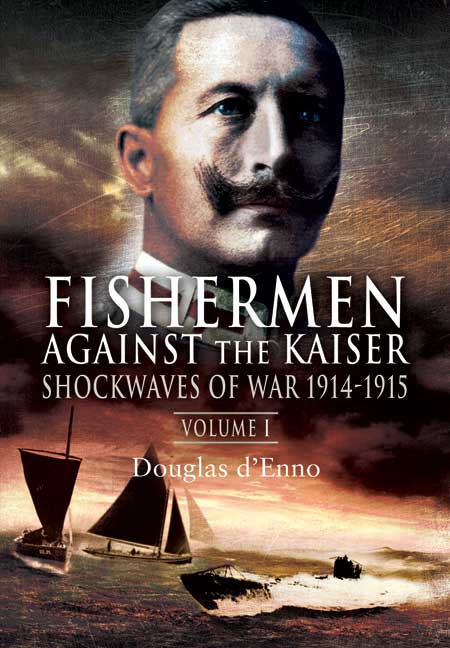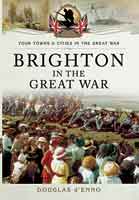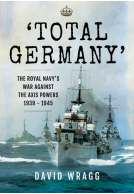Fishermen Against the Kaiser (Hardback)
Volume 1 Shockwaves of War 1914-1915
Imprint: Pen & Sword Maritime
Pages: 256
ISBN: 9781844159796
Published: 29th March 2010
Star Review
'After reading this book, one is left full of admiration and respect for the fishermen of Britain and their role in the First World War – achieving the author’s principal aim' - Review by Western Front Association member Dennis Williams
(click here for international delivery rates)
Order within the next 1 minute to get your order processed the next working day!
Need a currency converter? Check XE.com for live rates
| Other formats available - Buy the Hardback and get the eBook for free! | Price |
|---|---|
| Fishermen Against the Kaiser ePub (5.1 MB) Add to Basket | £6.99 |
British fishermen are among the unsung heroes of the First World War. The conflict with Germany had an immediate and enduring impact on their lives and livelihood. They were immediately caught up in the sea war against the Kaiser’s navy, confronting the threats presented by the submarines, minelayers, gunboats and capital ship of the High Seas Fleet. Often they found themselves thrust into strange, dangerous situations, which put their lives at risk and tested to the limit their bravery and skill as seamen. This is their fascinating story.
For the first time in this two-volume study Douglas d’Enno provides a comprehensive and lasting record of the services rendered by the fishermen and their vessels, both under naval control and on their own account. His pioneering history shows the full extent of their contribution to the British war effort, from minesweeping and submarine detection to patrol, escort and counter-attack duties. The areas of action were not limited to the home waters of the Channel, the North Sea and the Western Approaches but ranged as far as the Arctic and the Mediterranean’s Aegean and Adriatic seas.
Extraordinary stories are recounted here of the hazards of minesweeping, battles with U-boats, decoy missions, patrols, blockades, rescues and capture by the enemy. First-hand accounts make up the essence of the material. Reports from the leading trade journals, specialist literature and personal manuscripts vividly recall the fishermen’s experiences and the hardships and dangers they faced throughout the war.
Douglas d’Enno is a historian, linguist and journalist who has made an exhaustive study of the impact of the First World War on Britain’s fishermen and their vessels. After a career associated with publishing and – primarily - as a professional translator, he has devoted himself to writing and research. During his 20 years’ employment at the Ministry of Agriculture, Fisheries and Food (now DEFRA), he had access to substantial material on the nation’s fisheries and to contacts within the industry.
The author draws heavily on first-hand accounts, drawn from personal memoirs, trade journals and specialist writing; supplemented throughout by reference to various reports (contemporary and afterwards) and secondary works as appropriate. While, as the author points out, there has been a range of books published covering various aspects of fishermen and fishing vessels during the First World War, this book represents the first time that a single comprehensive history has been attempted...
Review by Western Front Association member Dennis Williams
... In a succession of chapters d’Enno takes us from minesweeping coastal waters and searching for submarines, to patrolling off Gallipoli. His history is illustrated throughout with the stories of individual fishermen and fishing boats and their experiences; this is where the joy of this book lies...
... As I read each chapter I was increasingly fascinated by the range of activities into which the fishermen were drawn and the contribution and sacrifices they made in support of Britain’s war effort. Even boats not directly engaged in minesweeping were always at risk of encountering these floating bombs. In the excellent chapter on Sea Wolves Roaming, d’Enno shows how fishing vessels were also prime targets of the U-boats and Germany’s policy of unrestricted submarine warfare...
... Overall the book succeeds in its aim of providing a summary overview of this important area of Britain’s war effort; for me, it opened the door to a novel world about which I would like to find out more. It should have appeal for both the landlubber (i.e. me) and those already of a maritime persuasion. Its strength lies in its compilation of first-hand accounts by the fishermen themselves, and the surprisingly wide range of theatres and experiences covered (amplified in the excellent appendices). The stories fascinate the reader with their insight into life aboard the fishing vessels and how the challenges of war became part of the routine dangers alongside those of the sea and the weather. After reading this book, one is left full of admiration and respect for the fishermen of Britain and their role in the First World War – achieving the author’s principal aim. Volume two promises to be equally engaging.
This subject is well off the beaten track for the majority of Soldier readers but is worthy of investigation. The first in a two-volume set, Doudlas d'Enno tells the fascinating story of the unsung heroes of the British fishing fleets during the Great War. Under Naval command or operating independently, the fishermen and their boats were employed on dangerous patrols in home waters, the Arctic, the Aegean and the Adriatic. With minimal training the crews operated as an auxiliary navy taking on minesweeping, U-boat patrols, decoy missions and blockade duties.
Soldier Magazine Sept 2010
This seldom-examined aspect of WW1 is detailed and well researched, with good use of private papers, diaries, official reports and publications. which are used to explore the role of trawlers, drifters and fishing smacks, together with their crews in combating mines, submarines and other naval threats in British coastal regions. The training of the crews, equipping and arming the vessels is clearly described but somewhat short on technical detail. The problems of integrating crews with Royal Naval Reservists used to naval discipline is effectively outlined; as are the problems of recruitment and retention, all making for a challenging leadership proposition for the ships' captains.
Military Illustrated
Awarding prize money - £1,000 for a captured or sunk submarine - encouraged aggressive seamanship and motivated these motley crews. Other areas of operations included the Dardanells (in support of the Gallipoli landings) and the Adriatic, where the trawlers had transport and evacuation duties alongside minesweeping and counter-submarine warfare. Tasks ranged from Zeppelin-spotting, as these huge dirigibles raided coastal towns, to protecting the main supply artery to France and providing a lifeboat rescue service. Captured trawler-men were very badly-treated by their captors, which only emphasizes their bravery. This book will appeal both too WW1 buffs and maritime specialists alike.
This book is something of a revelation. The sheer scale of the contribution made to the war effort by the British fishermen and their boats is very impressive and the price they paid deserves to be remembered - losses of ships and men were very heavy in every theatre where they served. Roll on volume two!
www.historyofwar.org
About Douglas d'Enno
DOUGLAS d'ENNO is a freelance translator, local historian and journalist whose companion volume Brighton in the Great War was published by Pen & Sword in 2016. He is also the author of a comprehensive first volume on Britain's fishermen and their vessels in the First World War (Fishermen Against the Kaiser, 2010). His first book, The Saltdean Story (1985), was followed by a dozen or so factual titles between 2001 and 2018, including Brighton Crime and Vice, 1800-2000 (2007). He has also contributed local history features to the Brighton & Hove Gazette, the Evening Argus/Argus and local/community publications. He lives in Saltdean, near Brighton, and is currently working on a new railway-related volume.




















